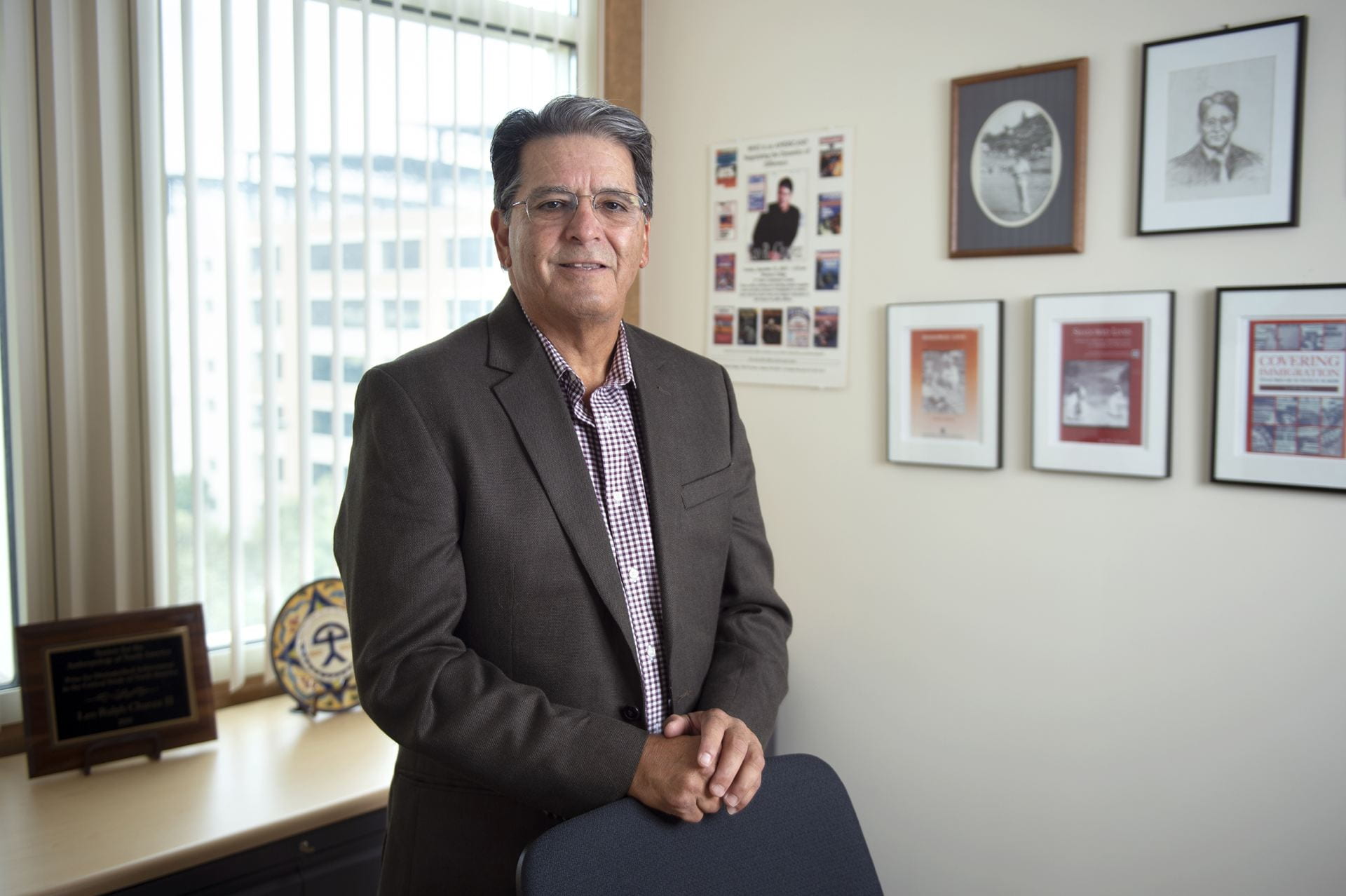UC Irvine's Leo Chavez elected to membership in the American Academy of Arts & Sciences
Renowned anthropologist studies international migration, particularly among Latinos

Irvine, Calif., April 19, 2023 — Acclaimed anthropologist, author and professor Leo Chavez from the University of California, Irvine – best known for his work in international migration, particularly among Latin American immigrants – has been elected to membership in the American Academy of Arts & Sciences. The 243rd class of inductees includes nearly 270 people from around the world, recognized for their accomplishments and leadership in academia, the arts, industry, public policy and research.
“I am pleased to congratulate Leo Chavez on his election to the American Academy of Arts & Sciences,” said Hal Stern, UCI provost and executive vice chancellor. “Professor Chavez’s research on international migration is highly impactful and a wonderful example of the excellent research being done at UCI.”
Chavez is a Distinguished Professor of anthropology in UCI’s School of Social Sciences. His research on transnational migration, particularly among Latino communities, is the focus of four books, including The Latino Threat: Constructing Immigrants, Citizens and the Nation, which earned the American Anthropological Association’s 2009 Latina and Latino Book Prize.
He has written more than 100 academic articles, produced two films and penned numerous op-eds on the uphill battle undocumented immigrants face in American society, with status affecting everything from physical and mental health to access to education and housing. Chavez’s work has helped debunk stereotypes of the Latino threat narrative echoed by politicians, pundits and journalists, for whom he consistently provides expert commentary. He has also examined immigrants’ access to medical care and the role of culture in cancer beliefs and treatment.
In 2018, Chavez was named a fellow of the American Association for the Advancement of Science. In 2019, he received the Association of Latina/o and Latinx Anthropologists’ Distinguished Career Award, honoring his outstanding research, teaching, service and public engagement efforts that enhance understanding of Latino lives and communities in the U.S. The following year, Chavez was named the association’s president-elect and is now serving a two-year term as president. And in 2021, he received the Society for Applied Anthropology’s Bronislaw Malinowski Award in honor of his work using social science concepts and tools to solve human problems.
Chavez earned a Ph.D. at Stanford University and has been a member of the UCI anthropology faculty since 1987. He helped build many of the institutional structures touted as foundational to UCI’s identity as a Hispanic-Serving Institution and minority-thriving institution, including UCI’s Department of Chicano/Latino Studies, which Chavez helped found as a program and then chaired.
“It’s an incredible and unexpected honor to be elected to the American Academy of Arts & Sciences,” he said. “To be mentioned alongside such outstanding scholars and artists as Alexander Hamilton, Gabriel Garcia Marquez, Charles Darwin, Martin Luther King and many others humbles me beyond words. I recognize my success benefited from the support of all my colleagues – and the administration – here at UCI. It’s a great honor for all of us.”
The American Academy of Arts & Sciences, founded in 1780, is one of the nation’s oldest learned societies and independent policy research centers, convening elected members from the academic, business and government sectors to respond to challenges facing the nation and the world.
The 2023 inductees join a distinguished roster of previously elected members, including Benjamin Franklin (elected in 1781), Alexander Hamilton (1791), Ralph Waldo Emerson (1864), Charles Darwin (1874), Albert Einstein (1924), Robert Frost (1931), Margaret Mead (1948), Milton Friedman (1959), Martin Luther King Jr. (1966), Stephen Hawking (1984), Gabriel Garcia Marquez (1984), Condoleezza Rice (1997), John Legend (2017), James Fallows (2019), Joan Baez (2020) and Sanjay Gupta (2021).
About UCI’s Brilliant Future campaign: Publicly launched on Oct. 4, 2019, the Brilliant Future campaign aims to raise awareness and support for UCI. By engaging 75,000 alumni and garnering $2 billion in philanthropic investment, UCI seeks to reach new heights of excellence in student success, health and wellness, research and more. The School of Social Sciences plays a vital role in the success of the campaign. Learn more by visiting https://brilliantfuture.uci.edu/uci-school-of-social-sciences/.
About the University of California, Irvine: Founded in 1965, UCI is a member of the prestigious Association of American Universities and is ranked among the nation’s top 10 public universities by U.S. News & World Report. The campus has produced five Nobel laureates and is known for its academic achievement, premier research, innovation and anteater mascot. Led by Chancellor Howard Gillman, UCI has more than 36,000 students and offers 224 degree programs. It’s located in one of the world’s safest and most economically vibrant communities and is Orange County’s second-largest employer, contributing $7 billion annually to the local economy and $8 billion statewide. For more on UCI, visit www.uci.edu.
Media access: Radio programs/stations may, for a fee, use an on-campus ISDN line to interview UCI faculty and experts, subject to availability and university approval. For more UCI news, visit news.uci.edu. Additional resources for journalists may be found at communications.uci.edu/for-journalists.


